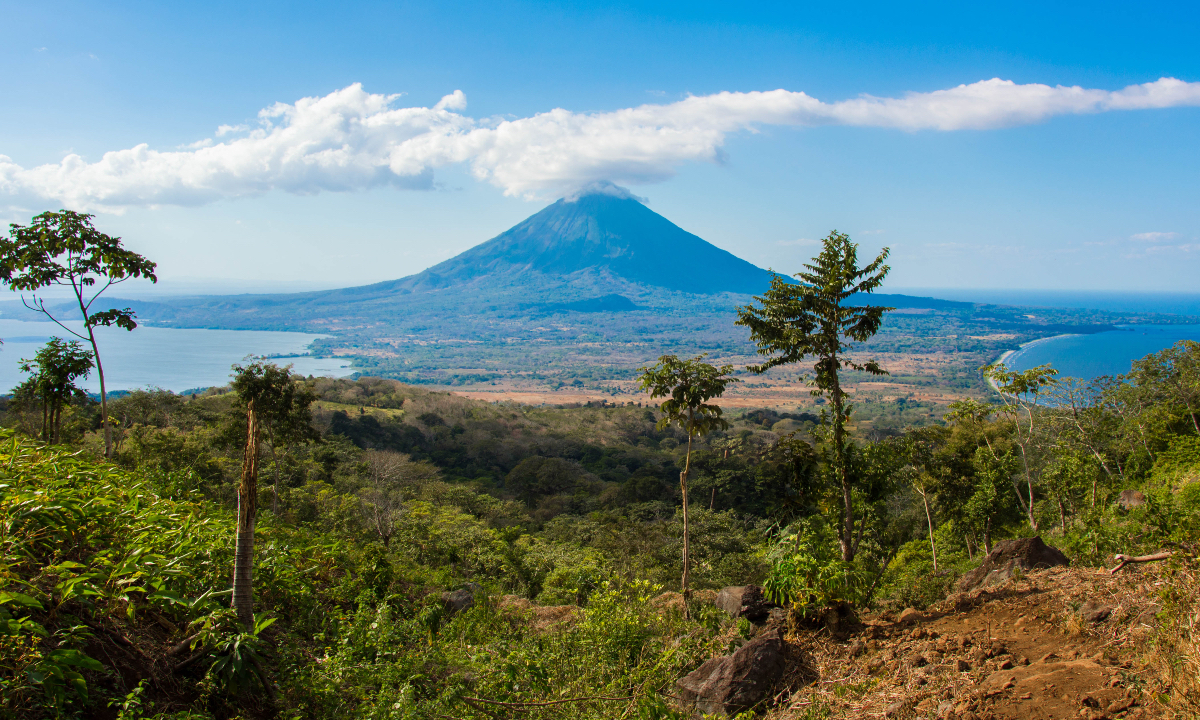Chinese firm unveils agreement for airport expansion in Nicaragua, hinting at potential infrastructure ventures

A view of an island in Nicaragua
Nicaragua, which in August inked a free trade agreement (FTA) with China, signed a number of infrastructure deals, including an airport expansion project, with Chinese companies at the third Belt and Road Forum for International Cooperation (BRF) in Beijing.
China CAMC Engineering Co, a Beijing-based engineering company, said in a stock filing at the Shenzhen stock exchange on Wednesday that it had entered into an agreement with the Nicaragua Ministry of Transport and Infrastructure to reconstruct, expand, and improve the country's Punta Huete International Airport. The deal totals 3.59 billion yuan ($491 million) in value and will expand the old airport into a high-grade international airport under a contracted period of 48 months once financing is settled.
The deal was inked on the sidelines of the third BRF, which concluded on Wednesday in Beijing. The two-day conference was held under the theme "High-quality Belt and Road Cooperation: Together for Common Development and Prosperity."
The deal was inked less than two months since the countries signed an FTA on August 31. The FTA was inked in a speedy fashion, only after over a year of negotiations, demonstrating the two countries' resolve to promote free trade and investment and deepen economic integration.
The FTA deal was seen as the most important achievement of bilateral pragmatic cooperation since diplomatic ties resumed.
China and Nicaragua resumed diplomatic relations on December 10, 2021, after the Central American country announced that it was severing "diplomatic ties" with China's Taiwan island.
According to the local news portal jpmas.com.ni, the airport deal would be one of eight contracts that will be signed this week.
Michael Campbell, Nicaragua's ambassador to China, recently said in an interview with China Media Group that with the inking of the FTA, there will be "a substantial increase" in Chinese investment in his country in the near future.
Without infrastructure, Nicaragua cannot take advantage of its strategic location, the ambassador said, noting that the BRI is helping the country to resolve challenges in highways, transportation services, and the improvement of airports.
Zhou Zhiwei, an expert on Latin American studies at the Chinese Academy of Social Sciences, said the signings of deals on projects fall into the "very fast-paced pattern" of events following the two countries' resumption of diplomatic ties.
"It shows that cooperation with China offers concrete, conspicuous, and effective results," Zhou told the Global Times on Wednesday.
Deals on the airport also verify the core driver role of infrastructure projects for the country's social and economic development in terms of the boost for tourism, trade, and people-to-people exchange, Zhou said.
In April this year, a Chinese company started an affordable housing project - the first large construction project after the two countries resumed diplomatic ties.
"Straddling between the Pacific and Atlantic Oceans, Nicaragua has a great strategic location. And infrastructure projects built in the country stand to have a better radius effect," Zhou said, believing cooperation on ports may follow, and "in the future, when the condition is ripe, there may be bilateral discussion on building the Nicaragua Canal connecting the two oceans."
In 2022, bilateral trade reached $760 million, with China primarily exporting textiles, computers, and communication equipment, and importing agricultural products, sugar, leather, and timber.
